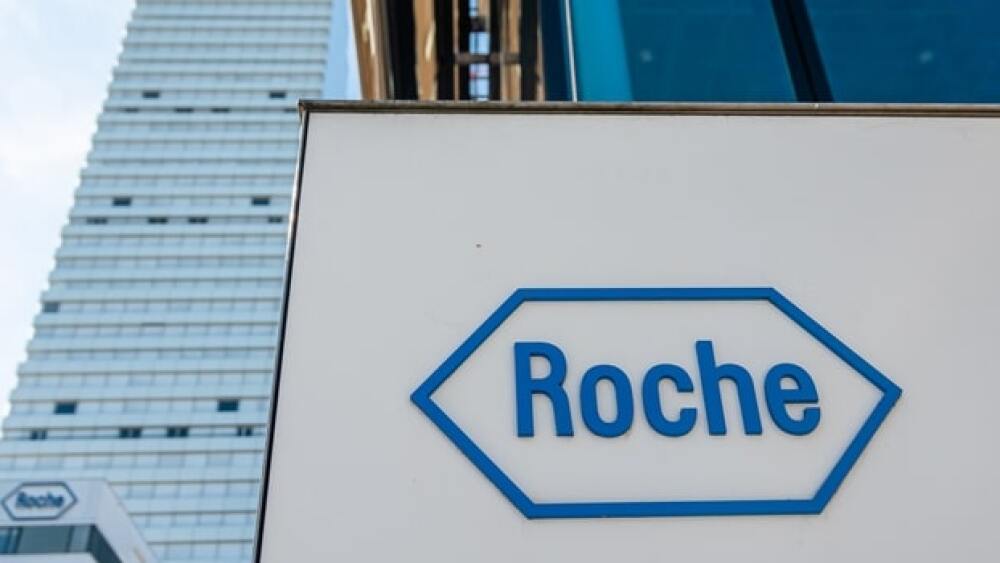Roche signed a big $6 billion-plus collaboration deal with Poseida on blood cancers while its partner, AC Immune, parsed failed data on an Alzheimer’s drug to suggest a positive spin.
Courtesy of Taljat David/Shutterstock
Roche signed a $6 billion-plus collaboration deal with Poseida Therapeutics on blood cancers, while its Alzheimer’s partner, AC Immune, parsed failed data on an Alzheimer’s drug to suggest a positive spin. Here’s a look.
Roche Partners with Poseida on CAR-T
Roche and Poseida Therapeutics inked a strategic collaboration and license pact. The two companies will work to develop allogeneic CAR-T therapies for hematologic cancers. It covers the research and development of multiple existing and new “off-the-shelf” cell therapies against targets in multiple myeloma, B-cell lymphomas and other blood cancers.
Under the terms of the deal, Roche picks up exclusive rights or options to develop and commercialize several allogeneic CAR-T programs in Poseida’s portfolio, including P-BCMA-ALL01, an allogeneic CAR-T for multiple myeloma. A Phase I trial is already underway. Another option is for P-CD19CD20-ALL01, an allogeneic dual CAR-T for B-cell malignancies. An IND is expected next year.
The two companies will also collaborate on a research program to create and develop next-generation allogeneic CAR-T therapies, which Roche may option. Roche is paying Poseida $110 million upfront and up to $110 million in near-term milestones and other payments. Poseida is also eligible for research, development, launch, net sales milestones and other payments up to $6 billion in total, in addition to tiered net sales royalties into the low double digits.
“We are thrilled that Roche has embraced the opportunity to partner with us and use Poseida’s unique allogeneic approach to develop CAR-T product candidates,” Devon J. Shedlock, Ph.D., Poseida’s chief scientific officer, Cell Therapy, said. “Using our proprietary technologies and manufacturing process including our booster molecule, we have the potential to develop and manufacture a product with high levels of stem cell memory T cells, which are correlated with potent antitumor efficacy in the clinic, at a scale that can potentially reach more patients and enable broad commercial use.”
Roche and AC Immune Suggest Alzheimer’s Therapy Shows Promise
Roche subsidiary Genentech and AC Immune have been working, largely unsuccessfully, in developing crenezumab for Alzheimer’s disease. In May, the drug failed a Phase II trial in a rare, inherited form of the disease.
However, at the Alzheimer’s Association International Conference, AC Immune described positive efficacy signals in the trial data. The drug missed the primary endpoints, the API ADAD cognitive test score and the Free and Cued Selective Reminding Test (FCSRT) Cueing Index, although there were numerical improvements over placebo for both. It also missed secondary endpoints, time to mild cognitive impairment/dementia, time to non-zero in Clinical Dementia Rating Global Scores (CDR-G2) and CDR Sum of Boxes, and biomarkers for amyloid-beta and tau. That hardly seems like a positive spin.
However, the companies suggest that all measures showed a positive trend. They also point to a slower than expected decline in the placebo group. The study enrolled patients with autosomal dominant Alzheimer’s disease (ADAD) associated with the Presenilin 1 E280A mutation. The patients were younger than expected as well, with fewer than typical amyloid deposits in the brain.
In a statement, AC Immune said, “Demographic and baseline biomarker data indicate a confluence of factors which may have caused the study to have lower than expected statistical power.”
There were no safety issues, such as brain swelling and ARIA, which have marred Biogen’s controversial Alzheimer’s drug Aduhelm (aducanumab), which has struggled to gain traction in the market as well.





